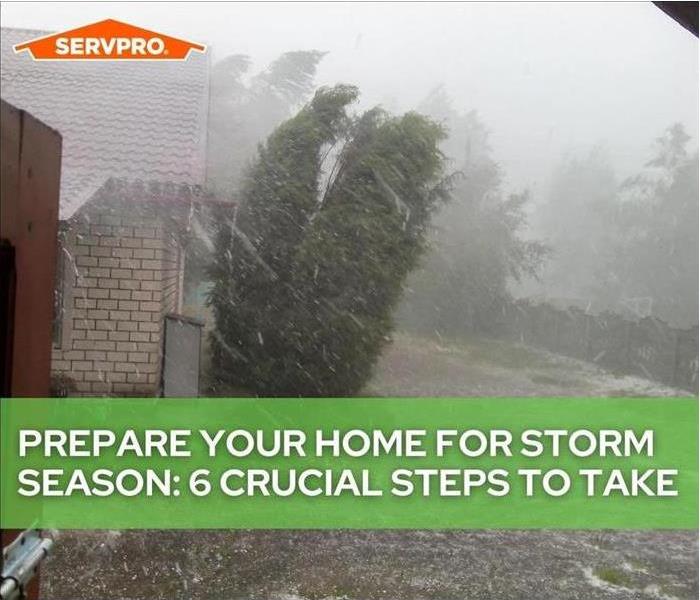Prepare Your Home for Storm Season: 6 Crucial Steps to Take
12/10/2024 (Permalink)
When the winter storm season hits, anything can happen. Even the best weather professionals can get things wrong, and any of us can find ourselves Googling restoration services near me after a major storm. Thankfully, there are a few things you can do to decrease the risk that you'll experience storm damage, however.
1. Trim, Trim, Trim
Your trees are one of your home's greatest threats, and fallen trees are common after a storm. Roofs weren't made to endure blunt impacts from large trees, and the damage can be extensive. Any tree can cause some risk. Since you don’t want to cut them down, a good compromise is to trim away all dead branches and any limbs that are a threat to your home or car.
2. Repair Steps and Railings
The constant freezing and thawing of early winter, and then the ice of later winter storms, can wreak havoc on steps or railings that are already in poor condition. Fix everything up to ensure you don't have an accident.
3. Winterize Pipes and Faucets
Be sure to turn off the water to your outdoor faucets. By doing so, you can avoid having to clean up after a spring flood from a pipe that was cracked during a winter freeze. If you have indoor pipes that run close to your exterior walls, add some extra insulation or wrap the exposed pipes. Be sure to keep your home heated to at least 65 degrees to ensure pipes don't freeze.
4. Clean Your Chimney
Every year in America, nearly 27,000 chimney fires cause many millions of dollars in damage, displace families during the coldest season of the year, and even cause deaths. You take every precaution inside whenever you light a fire, but you might have forgotten about the chimney. Get your chimney inspected and cleaned every year.
5. Check the Smoke Alarms
Winter means cozy fires, heated wood stoves, electric blankets, and space heaters. These are all major fire hazards, and the simplest first line of defense for your family is a set of good smoke alarms. There are two types of smoke alarms, and you should have both.
Photoelectric alarms detect smoldering, smoky fires. They are best to have near bedrooms and places where an errant spark might settle into a rug or couch or a fire in the walls might send out smoldering heat. Ionization alarms detect fast, flaming fires, and are important to have in places where you can have a sudden, relatively smoke-less blaze, such as kitchens. You can also get dual-sensor alarms that have both technologies.
6. Prevent Ice Dams
Clogged gutters can build up ice dams that destroy the gutters and damage the roof. Clean out the gutters, and once your gutters are clean, be sure to put in quality gutter guards to keep leaves and debris from building up.
Call Us When You're Looking for "Restoration Services Near Me"
Despite the best preparations, accidents can happen. When they do, we're here for you. Contact us at SERVPRO of Pullman right away if a winter storm damages your home.

 24/7 Emergency Service
24/7 Emergency Service
